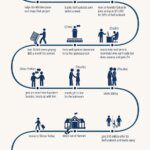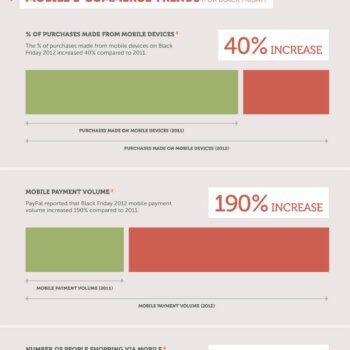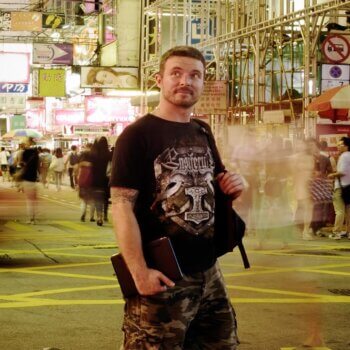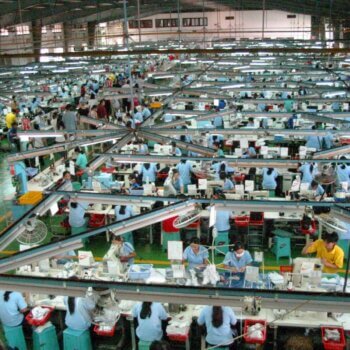My name is Bryan Alexander Lim and I’m a fine art photographer. I’m a 23 years old self-taught photographer and I’ve been doing photography for 4 years now. After completing my Pre-University, I moved over to the University of Hertfordshire, United Kingdom and graduated with a Degree in Mass Communication. I was exposed to photography at the age of 18 years old because my late-grandfather owned a Voigtlander Bessa II and he inspired me.
Back in 2010, photography forums were a big thing and by joining it, it landed my first ever photography job by shooting events. Even though the pay was low, but the experience was rewarding. Eventually, I met a few people who invited me to shoot weddings, food photography, modeling, products and landscape. I fell out of favor towards those photography jobs and I embarked on my own journey. After a few years discovering photography on my own, I found the world of fine art photography. Fine Art photography expresses a creation in accordance with the vision of the artist as a photographer. That being said, that sort of photography is still new to the Malaysia marketplace. Sooner later, I found myself involved in projects with local artists and organization, conducting photography workshop and also being featured in international medias.
Growing up in the main city of Malaysia, Kuala Lumpur, it has always been competitive in the creative industry. But, looking at the brighter side, there is always an opportunity that creates an outlet for young creative people to enlists the energy, ideas and hope to evaluate their own circumstances, create change, and be different. Malaysia being a multicultural country, it has played an important role in shaping my artistic portfolio.
In your own words what is it that you do?
I optimize creativity and amplify concepts to create a story through the help of photography. The primary objective is to convey an idea into a visual form, which connects with the audience and capture their attention. Not forgetting, constantly inspiring the younger generation and spreading a positive message to them.
How did you get into your work on Bryzoid?
Initially, to be honest, it started out as a hobby but eventually it turned into passion. And that passion spurred me to chase my dream and put my work out there.
Could you walk us through the process of starting out?
Before I started out, I had to make sure that I would be doing something different from everyone. So, I questioned myself, how can I make a valuable impact in society that differentiate myself from others?
With that self-reflect question, it made my mentality focused in bringing something unique into the creative scene. That was when I decided to venture into Fine Art photography. This genre of photography has always been around, but not given enough exposure in Malaysia. Thus, I got out from my comfort zone, and took on the challenge.
Being an unknown photographer during the early days, the biggest influence for me in the process of starting out, was utilizing social media as a marketing tool in expanding and broadening the reach. It is one of the most effective tools and it doesn’t involve any cost at all. After identifying the target audience I had to analyze which social media platform would obtain the most exposure. In my case, it was Facebook, and Instagram.
Later on comes the branding part. Everything from the name, the logo, the look and feel of the photographs, the tone, and every small detail were taken into consideration. Being new in the industry, it is consequential in defining the personality of your business.
Being passion-driven, I constantly put my work out there for anyone to see regardless if they’re interested or not. People would share or repost on their social media, which leads to word-of-mouth.
Did you encounter any particular difficulties during the beginning and how did you overcome it?
The biggest challenge I encountered was cultivating a relatively young (in the sense that it is not well exposed) genre of photography in Malaysia and gaining the acceptance in the eye of the community. Changing the view of the public isn’t an overnight success but it takes months or even years.
In order to overcome the problem at hand, I persevered and kept shooting, make sure quality contents were published as often as possible. I put myself out in the forefront by collaborating with other photographers and I am truly grateful in those years I endured, every single day was a lesson for me. Moreover, building network and relationship was critical because anyone who does business would know the phrase “It’s not what you know, it’s who you know.”
How have you been developing Bryzoid since; What’s the developmental direction?
Once you keep the ball rolIing, I always believe that sustainability and consistency is the key in developing. Be adaptable, be flexible and be ready to change according to the environment.
I invest a lot of time in researching and keeping updated with the latest trends in photography. It enables me to improve my power of revisualization and molds my creative mind.
The developmental direction for Bryzoid is mainly focused on branding. I take into account of how I put my brand out there and how it stands out from others. Create your own style, leave a mark, and constantly come up with fresh ideas.
With my vast knowledge in mass communication, I tend to develop the marketing strategy as well. I make full use of the social media platform such as Facebook, Instagram and Tumblr not only because it’s free, but also it reaches a mass audience.
What kind of feedback did you get for Bryzoid, what kind of traction?
Ever since I started out, I strived to be the difference in the marketplace and after all the hard work, it is safe to say that I’ve been receiving great feedback. Furthermore, I am also truly grateful for featured interviews with a couple of magazines which, helped expose my work to the community and that have really been an abundant credibility to Bryzoid.
Do you face a lot of competition in this industry? What is your strategy against your competition?
There’s definitely a lot of competition in this industry, but with Bryzoid being a niche market towards Fine Art photography, to an extent, the competition has been pretty healthy.
I like to keep my strategy simple, to define my brand and be distinctive.
Truth is, the competition doesn’t really bother me, because at the end of the day, your success is determined by your endless effort in striving for the best. And if your business is run with passion in your heart and soul, you will always find a way to sustain it.
Have you developed any industry insights that you could share?
Within the years, Fine Art photography has started to pick up among the younger generation. This is mainly because of the era that they were born in and the exposure they gain from the Internet. These days there are plenty of tutorials on YouTube and many websites, which offers lessons. Thus, the community within the industry is growing and at the same time it will be much more competitive.
Another concern in this industry is about other photographers copying or following your style of photography and who was the first to start the trend and etc. Honestly, in my opinion, it doesn’t matter who does it first, what matters to me is who does it right.
All in all, I am very happy to see this genre of photography grow and develop in Malaysia. There are many young local talents and all they need is a platform that would help elevate their work and empower them to do better in life.
How do you plan to stay relevant in this industry?
There are two things that I want to share on staying relevant.
Firstly, developing a Unique Selling Proposition (USP) for my photography is one of the main priorities. It basically means offering your target market what you have that the competitors don’t. Always be aware of the changes in the marketplace and seize any opportunity that comes through that door.
Secondly, maintaining a close emotional relationship with my target audience. The key is to always keep your ears open, and look out for constructive criticism in order to improve. I might as well save for a rainy day because you might never know how precious or useful a feedback can be.
What is the future of the industry in your opinion?
As difficult it is to predict the future, I foresee and believe that this industry will continue to grow as people start to get inspired in expanding the realm of artistic value in this country.
Were there anything that disappointed you initially?
Initially the only thing that disappointed me was during the process of starting out because nobody was responding to my effort and no appreciation was shown towards my work. In retrospect, it was definitely part of the struggle, which made me a stronger person today. I just had to keep my chin up and keep hustling.
What do you think about being an entrepreneur in Asia? Is it harder or easier, why?
To be honest, being an entrepreneur in Asia is a great idea because the industry is still relatively young and not as profound as other parts of the world. That being said, there is still a lot of space for improvement and opportunity to start a business regardless of what industry it is.
It is a very subjective matter to say if it’s harder or easier because it really depends on the background of an individual. In my view, to a certain extent, it is harder. The biggest factor that affects being an entrepreneur is the education system. When I was in school, there wasn’t any form of syllabus that offers creative or critical thinking. As a student back then, I find it really tough to express my thoughts and to think out-of-the-box. It is always better to start molding the mind at a young age because it enables one to be open-minded and willing to expose oneself to the things of the world.
What is your opinion on Asian entrepreneurship vs Western entrepreneurship?
There is a lot to discuss and debate on this question but I truly respect and believe that the Asian and Western way of entrepreneurship has it’s own respective advantage and disadvantage.
In my opinion, being born and raised in Malaysia, I think some of the biggest challenges for Asian entrepreneurs are relatively their upbringing through the ranks of education system. While education system in Asia emphasizes on rote learning and mostly being pampered with spoon-feeding in schools hence they are not used to critically thinking out-of-the-box. Nevertheless, in recent years, it is absolutely motivating to see Asian entrepreneurs stepping up their game and making it big in a global scale. For example, Jack Ma, founder and Executive Chairman of Alibaba Group.
Being fortunate that I had the opportunity to study abroad, it really opened my eyes to the Western and European culture. In my opinion on Western entrepreneurship, I generally think they get much more exposure at a young age which would enhance the development of their creative thinking. Furthermore, they are not as conservative as Asians. As compared to the west, in anything they do and if they fail, there is a support system (i.e welfare system that the government established as a safety net) to help them but there is none in Asia.
What is your definition of success?
My definition of success, personally and professionally is to add value in people’s life. With the talent you have, make it a point where you bless people and inspire them. Be someone that nurtures, build, and understand who seeks for the best in people. Leave people better than found them.
Why did you decide to become an entrepreneur?
I have always been a creative person, and the word creative comes from the Latin term creō, which basically means, “to create, make”. I decided to become an entrepreneur because it enables me the freedom to create something from nothing and it drives me to inspire others in making a difference in the society.
What do you think are the most important things entrepreneurs should keep in mind?
Stay true and focused to the passion of the industry and constantly remind yourself why you started the business. Always be aligned with your goals and vision of the company.
In your opinion, what are the keys to entrepreneurial success?
A good attitude and the ability to keep the passion burning.
Any parting words of wisdom for entrepreneurs out there?
Always keep your eyes open, keep your ears attentive and be the change that needs to be happened in the marketplace. Work hard and stay humble!
Connect
instagram.com/bryzoid
facebook.com/bryzoid
www.bryzoid.com
































